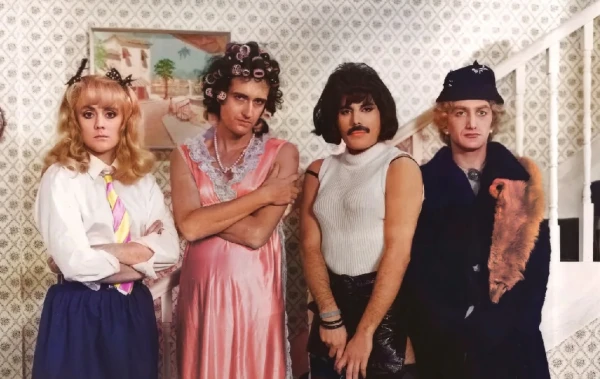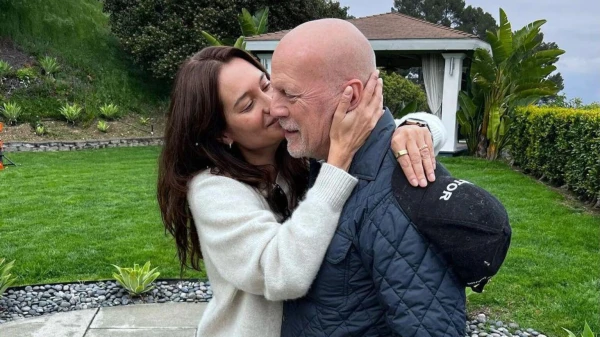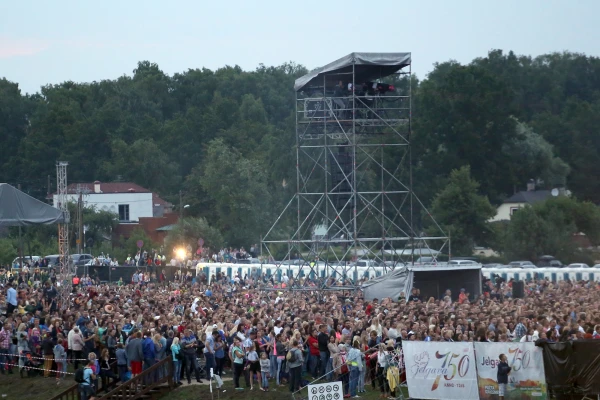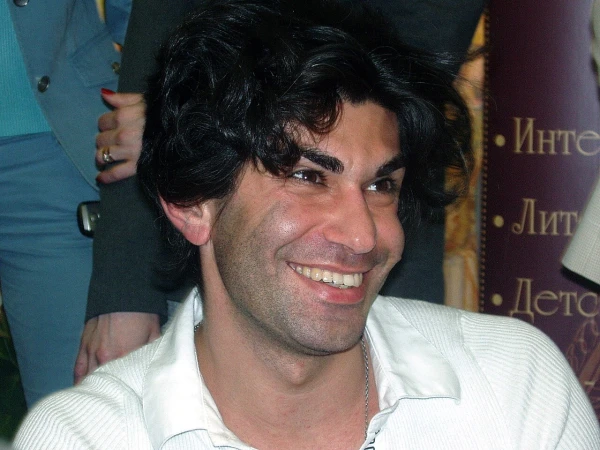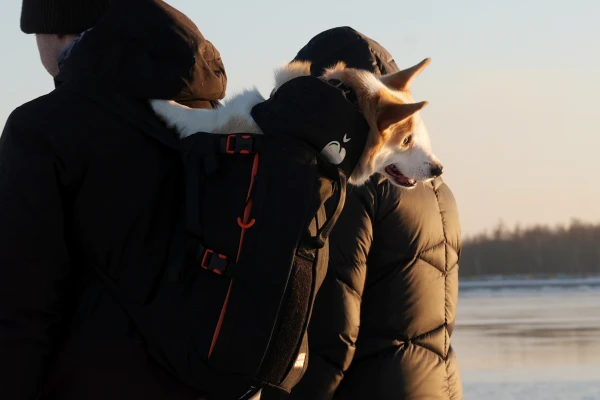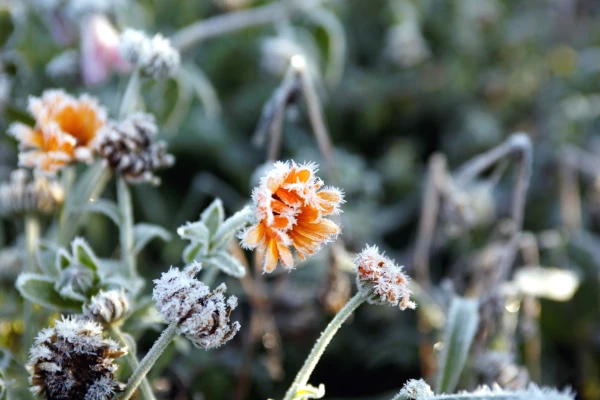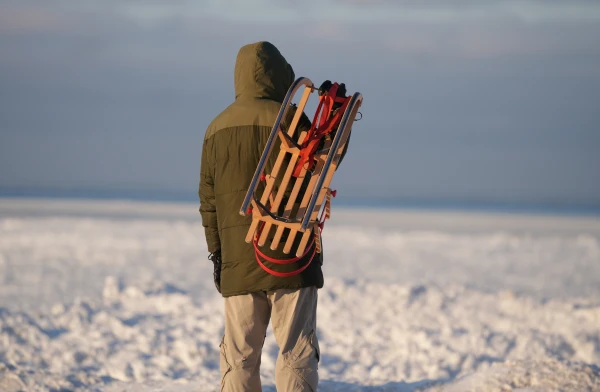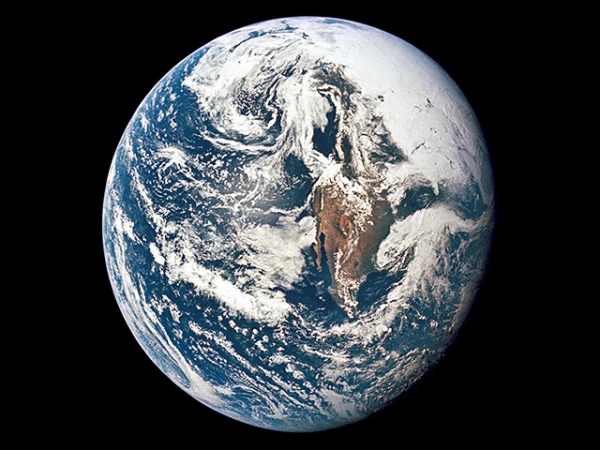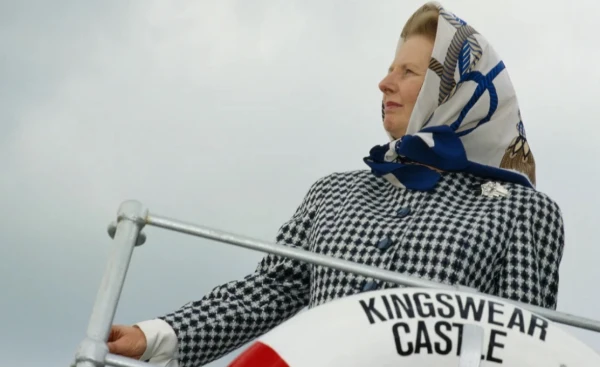
She was helped to become a politician by the great artist Laurence Olivier.
On October 13, Margaret Thatcher would have turned 100 years old. It is widely known that she was the first woman to hold the office of Prime Minister of Britain. Much less is known about the fact that her mentors included a Nobel laureate and a world-famous actor.
British writer and actor Stephen Fry wrote in one of his essays for The Daily Telegraph that there is one surefire way to make everyone read a newspaper article — start it with the words "Margaret Thatcher." Sir Stephen is not among the admirers of Baroness Thatcher, so he should not be blamed for bias. He is simply stating a fact. The achievements of Margaret Thatcher, regardless of whether they are viewed positively or negatively, are known to everyone, or at least to most. Privatization. The crushing of trade unions. A bloody victory over Irish terrorism. The war with Argentina and assistance to Ronald Reagan in his efforts to dismantle the USSR. But Margaret Thatcher was not only a successful stateswoman. She was also a scholar, a rather insecure politician, and a keeper of the family hearth.
Thatcher and Soft Ice Cream
Margaret Hilda Thatcher (then Roberts) was educated as a chemist, specializing in food production. She received her degree from Oxford. Her mentor at university was Dorothy Hodgkin, the greatest chemist and Nobel Prize laureate. It is believed that Thatcher was a rather mediocre scientist; however, Hodgkin thought otherwise. She paid tribute to the daughter of a shopkeeper from the town of Grantham in Lincolnshire, with a population of 30,000, who managed to break into Oxford and was the first in her family to earn a university degree. The good relationship between Hodgkin and Thatcher would last a lifetime, although they held opposing political views.
As for Thatcher's scientific career, it was not very long. Margaret graduated in 1947, got married in 1951, and abandoned science to pursue politics and law. The pinnacle of the future Prime Minister's chemical research was her work on creating soft ice cream for the J Lyons company. The task was not so much to invent a new dessert — soft ice cream already existed — but to further saturate it with oxygen while maintaining its texture. This would significantly reduce production costs.
The new ice cream appeared. Many experts claimed that her involvement in the work was greatly exaggerated, if not entirely fabricated. Nevertheless, Thatcher remains the only British Prime Minister in the country who is a member of the Royal Society (the equivalent of the Academy of Sciences).
Thatcher and Theatre
Margaret would not have become Prime Minister and would not have been such a skilled negotiator if it were not for the great English actor Laurence Olivier. He was a member of the Conservative Party and even wrote her a congratulatory letter after her victory in the 1979 elections. However, their relationship went deeper than mere correspondence. Thatcher was born with a rather unpleasant voice, and many participants in her election campaign were convinced that this voice would repel voters. Her chief advisor was acquainted with Olivier and shared his concerns with him. He recommended his speech coach. After a six-week training session, Thatcher spoke slightly lower, her tone became more confident and even persuasive. This helped both in her election campaign and played an important role later during her tenure as Prime Minister. The instructor was paid £37.80 for his work.
And this was not the first time Olivier helped Thatcher. The first instance dates back to 1971. Thatcher was then the Minister of Education and Science. At some point, she decided that she needed to do something about her communication skills, and Olivier gave her five lessons in mastery. In January 2005, a radio play titled "When Larry Met Maggie" aired on Radio 4 in Britain, dedicated to this story.
Thatcher's early political career was weak, and the world might never have heard of the "Iron Lady."
Margaret, then Roberts, first ran for Parliament in 1950. It seemed everything was in her favor. She did not speak very well, but she was young and attractive, and she was the only female candidate in the constituency. She lost. A year later, there were by-elections, and she lost again — in the same constituency to the same Labour candidate. Any other politician would have been written off after two defeats. And it almost happened. For the next few years, Margaret did anything but politics. It was during this time that she married successful businessman Denis Thatcher, changed her surname, gave birth to twins — Mark and Carol, and earned a law degree. Only after that did she return to politics. She won the 1959 election in the Finchley constituency in London, which she would represent for the rest of her life.
Thatcher and Children
Whatever they say in the rest of the world, in Britain, Margaret Thatcher is known as "Thatcher the Milk Snatcher." This is because in 1970, the Conservatives came to power, and Thatcher was appointed Minister of Education and Science. Her first act in this role was to cut the ministry's budget. She approached the issue from a scientific perspective. She refused to cut expenses related to the core — educational — activities of schools. Instead, she focused on reducing other expenditures. Among those cut was the provision introduced by Churchill that ensured free milk for primary school students. A huge scandal erupted. Thatcher's insistence that the abolition of subsidies did not mean that children would stop receiving milk, but rather that schools would have to pay for it, fell on deaf ears. Her explanations that she was merely continuing what the Labour Party had started before her by abolishing free milk for older students were in vain. She reminded that very young children, under seven, would receive milk for free regardless of whether they attended school or not. In opposition newspapers, and later in Parliament, she began to be called "Thatcher the Milk Snatcher."
In 1976, when Thatcher was elected leader of the Conservative Party, a piece about this published in the Soviet newspaper "Red Star" referred to her as the "Iron Lady." The publication was discovered by a Moscow correspondent for The Times, who reported it to his readers. He translated "Iron Lady" as Iron Lady. And this nickname stuck to her worldwide.
Interestingly, in Britain itself, the new nickname, unlike the old one, did not catch on — it was too unoffensive, quite the opposite. Apparently, it reflected a particular dislike for her among a very large number of people. This group reportedly included Queen Elizabeth, who ironically appointed her Prime Minister. However, this was not visible in public. Moreover, both ladies went out of their way to prove that their relationship was excellent. For example, cameras once captured a humorous exchange between Elizabeth and her Prime Minister. Allegedly, the Queen did not like the curtsy that Thatcher made upon meeting her, and she herself, barely holding back laughter, demonstrated how ladies should greet their queen.
Thatcher and Gender
In 1979, shortly after taking office as Prime Minister, Margaret Thatcher received an unusual offer from the Japanese government. In Tokyo, Thatcher was to attend the G7 summit. Not quite understanding how to deal with the first female participant of the "Seven" summit and how to receive her, the Japanese offered her 20 female karateka as bodyguards. Thatcher quickly and rather bluntly explained to the hosts that they had made a mistake. "If other heads of delegations were offered 20 gentleman karateka, the Prime Minister would have no objections. However, she does not want to be singled out in any way. There were and will be no female officers in her security detail, past or future," her response to the Japanese stated. The issue was raised separately at a meeting between the British Cabinet Minister and his Japanese counterpart. "He stated that Mrs. Thatcher would participate in the summit as Prime Minister, not as a woman."
Thatcher, as many who knew her say, was somewhat burdened by the fact that she was viewed primarily as a woman.
In an interview long before she took office as Prime Minister, Thatcher remarked that she did not believe a woman would ever become Prime Minister of Britain. After she proved herself wrong, she was accused of being too quick to resort to forceful solutions to problems simply because she feared being perceived as weak. This was the case during the suppression of the miners' strike and the protests against the placement of American nuclear weapons in the country. Thatcher personally made the decision to use force after a group of terrorists took over the Iranian embassy in London. The embassy was stormed by military special forces. Finally, Thatcher almost personally made the decision to initiate operations against Argentina, which seized the British Falkland Islands in 1982.
Thatcher and Cooking
While Margaret Thatcher lived at 10 Downing Street, there was no cook. She prepared dinner for her husband Denis every evening. And if any cabinet members stayed with her until evening, she cooked for them as well. It is said that even foreign guests often had the honor of tasting something from her skillet.
Thatcher preferred what is considered real English dishes — various kinds of pies, stews, and braised meat. She was less concerned about breakfast, preferring grapefruit and a couple of eggs.
It should be noted that the Prime Minister loved to host journalists in her kitchen and enjoyed being photographed there. And once, her kitchen appeared in a movie.
In one of the Bond films — "For Your Eyes Only," released in 1981, the British Prime Minister — a woman is shown in her own kitchen at Downing Street. Moreover, she (nostalgically recalling her past as a food scientist) loved to experiment in the kitchen. As her acquaintances said, she could mix ingredients that, by all culinary laws, should not be combined, and it often turned out quite well. As a chemist working in the food industry, she also had great respect for canned goods. In one of the photographs from her actual kitchen, jars of canned beans, stew, and fruit in syrup can be seen.
By the time Margaret and Denis Thatcher moved to Downing Street, their children had already grown up and lived separately. Margaret was very fond of her son and seemed to be in love with her husband until the end of her life. However, she kept a distance from her daughter Carol. However, as the servants of Baroness Thatcher recalled in the twilight of her life, only Carol often came to visit her (Denis died in 2003), while Mark rarely appeared at the Thatcher home and kept very quiet and withdrawn.
Thatcher's aides also recalled that her forced departure from the post of Prime Minister (she lost her position as a result of a "palace coup," when the Conservative bosses removed her from the party leadership, which automatically meant her resignation as Prime Minister) literally knocked her off balance. Moreover, it turned out that she, who was perfectly oriented in the kitchen, completely lacked the skills to do other ordinary tasks. She did not understand how to make phone calls, as for decades she simply picked up the receiver and started talking, or how to send a fax.
Thatcher and Celebration
Perhaps the only place where Margaret Thatcher is not just loved but idolized is the Falkland Islands. There, they celebrate a special holiday every year — Margaret Thatcher Day. This is understandable. The Falklanders are too far from Britain for their residents to be overly concerned about the problems that the British associate with Thatcher. Strikes, privatization, poll tax — all this is meaningless to the islanders. However, none of them has forgotten that it seems only thanks to her that they are not living under Argentine rule. For a long time, Argentina disputed the ownership of the Falklands. When the country experienced a monstrous economic crisis that threatened the ruling junta's stability, the military devised a plan to strengthen their position with a small victorious war. On April 2, 1982, Argentine troops landed on the islands and occupied them. The calculation was simple and seemed foolproof. The Falklands are located 500 km from Argentina and almost 13,000 km from Britain. The metropolis would not spoil relations with Argentina and the USA (the Monroe Doctrine has not been repealed) to reclaim a bit of land that many Britons are even unaware of.
However, Thatcher decided otherwise. By her order, a real armada was assembled and sent to the South Atlantic to liberate the islands.
At the same time, Thatcher negotiated with the military dictator of Chile, Augusto Pinochet, who allowed British planes to use his military air bases (the militaries of Chile and Argentina never got along). The conflict lasted just over two months. About 1,000 people died on both sides, and more than 2,000 were injured.
The islands were finally liberated in June 1982. Since then, two holidays have been celebrated here — Liberation Day (June 14) and Margaret Thatcher Day (January 10). The date is not accidental: on this day in 1983, Margaret Thatcher made her first and only trip to the islands. At that time, she solemnly assured the islanders that their right to self-determination would be vigorously defended.
In Britain itself, the liberation of the Falklands was welcomed, but it did not become a national holiday.
A little over eight years later, her subordinates would send her into retirement, and John Major would become Prime Minister. She would live for almost another 23 years and die in London at the Ritz Hotel on April 8, 2013, at the age of 87. Observers noted that she was not just the person who held the office of Prime Minister for the longest time. Her funeral took place at St. Paul's Cathedral with military honors. Queen Elizabeth and Prince Philip attended the funeral. After cremation, her ashes were buried at the Royal Hospital in Chelsea next to her husband's ashes.


